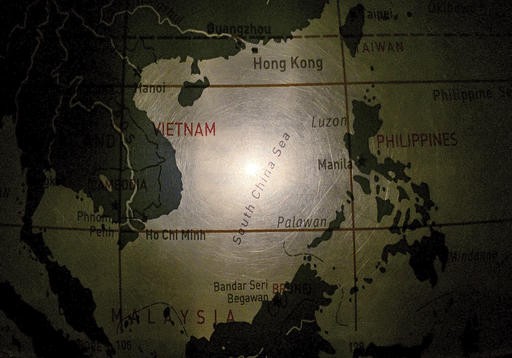Report: South China Sea tensions to drive defense spending
Change Size
 An illuminated globe shows the South China Sea at a museum in Pathumthani, Thailand, May 1. (AP/Charles Dharapak))
An illuminated globe shows the South China Sea at a museum in Pathumthani, Thailand, May 1. (AP/Charles Dharapak))
G
rowing tensions in the disputed South China Sea will drive up defense spending in the Asia-Pacific region by almost 23 percent by the end of the decade, consultancy IHS Jane's said in a report Thursday.
Combined regional defense budgets will grow from US$435 billion last year to $533 billion in 2020, furthering a shift in global military spending away from Western Europe and North America toward emerging markets, especially in Asia, the report said.
"A number of the South China Sea's littoral states appear to be responding to China's more assertive stance in the region and there is no sign of this trend coming to an end," Janes' principal analyst, Craig Caffrey, said in the report.
Tensions have been rising steadily over the South China Sea, driven largely by China's military buildup and more robust assertions of its claim to virtually the entire crucial water body, along with its islands and reefs. Following years of double-digit annual percentage increases, China has far-and-away the region's biggest defense budget at $146 billion last year, according to the government.
That growth is now slowing and Jane's said it expects China's budget to rise by about 5 percent to $233 billion by 2020.
Over recent years, Beijing has created new islands and built airfields and other military infrastructure on them, although Beijing says they are intended largely for civilian use.
Beijing in turn accuses the US of increasing tensions with frequent naval operations in the area, activity that goes back decades. While China says it has no objections to freedom of navigation in the area, it has frequently interfered with or issued warnings to fishing vessels and military planes and vessels.






